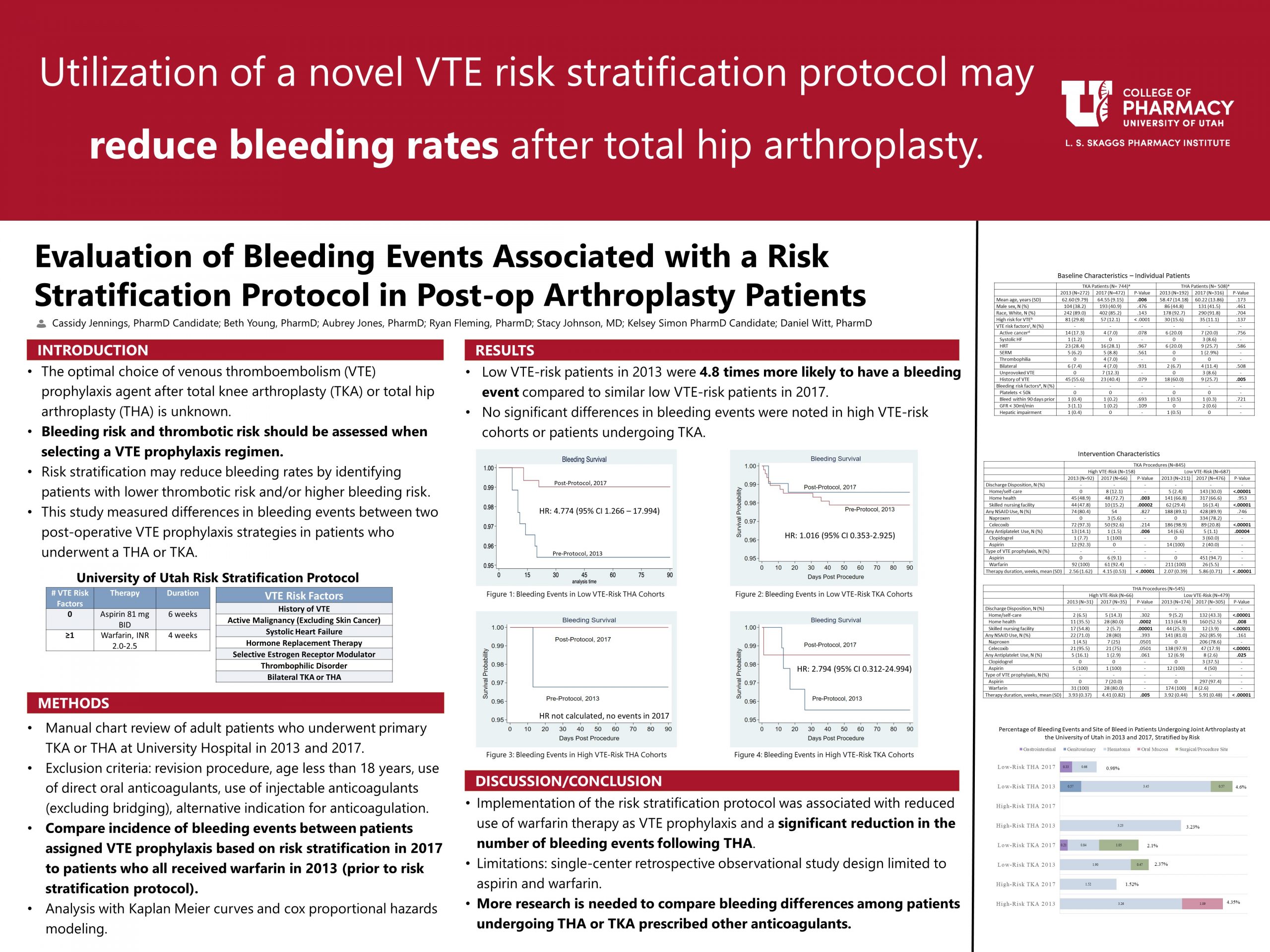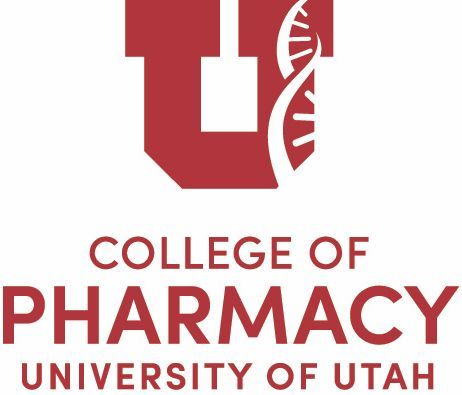Jennings Cassidy
Evaluation of Bleeding Events Associated with a Risk Stratification Protocol in Post-op Arthroplasty Patients
April 22, 2020 in College of Pharmacy, Virtual Poster Session Spring 2020

SUMMARY
Background: The University of Utah developed a risk stratification protocol to determine which medication, warfarin or aspirin, is prescribed to patients undergoing joint arthroplasty procedures based on risk for venous thromboembolism (VTE) and bleeding.
Objective: To validate the belief that a risk stratification protocol to determine postoperative VTE prophylaxis after primary total hip arthroplasty (THA) or total knee arthroplasty (TKA) lowers bleeding events compared to prescribing anticoagulation for all patients regardless of VTE risk.
Patients/Methods: Retrospective cohort study using data obtained from electronic medical record review of arthroplasty procedures at the University of Utah Hospital. Bleeding rates during the 90-day post-op period were compared between a cohort of TKA/THA patients prescribed warfarin in 2013 to patients prescribed warfarin or aspirin based upon risk stratification in 2017.
Results: 1,390 procedures were identified. The unadjusted hazards ratio for major bleeding after THA surgery in low-risk patients in 2013 vs 2017 was 4.774 (p=.021; CI 1.266 – 17.994), suggesting a lower rate of bleeding with the use of the risk stratification protocol. Bleeding rates were similar among TKA and high-risk groups and results were not statistically significant.
Conclusions: Utilizing a risk stratification protocol to determine VTE prophylaxis resulted in lower major and clinically relevant non-major bleeding events after THA surgeries. Further study is needed to clarify bleeding risk after TKA procedures.
